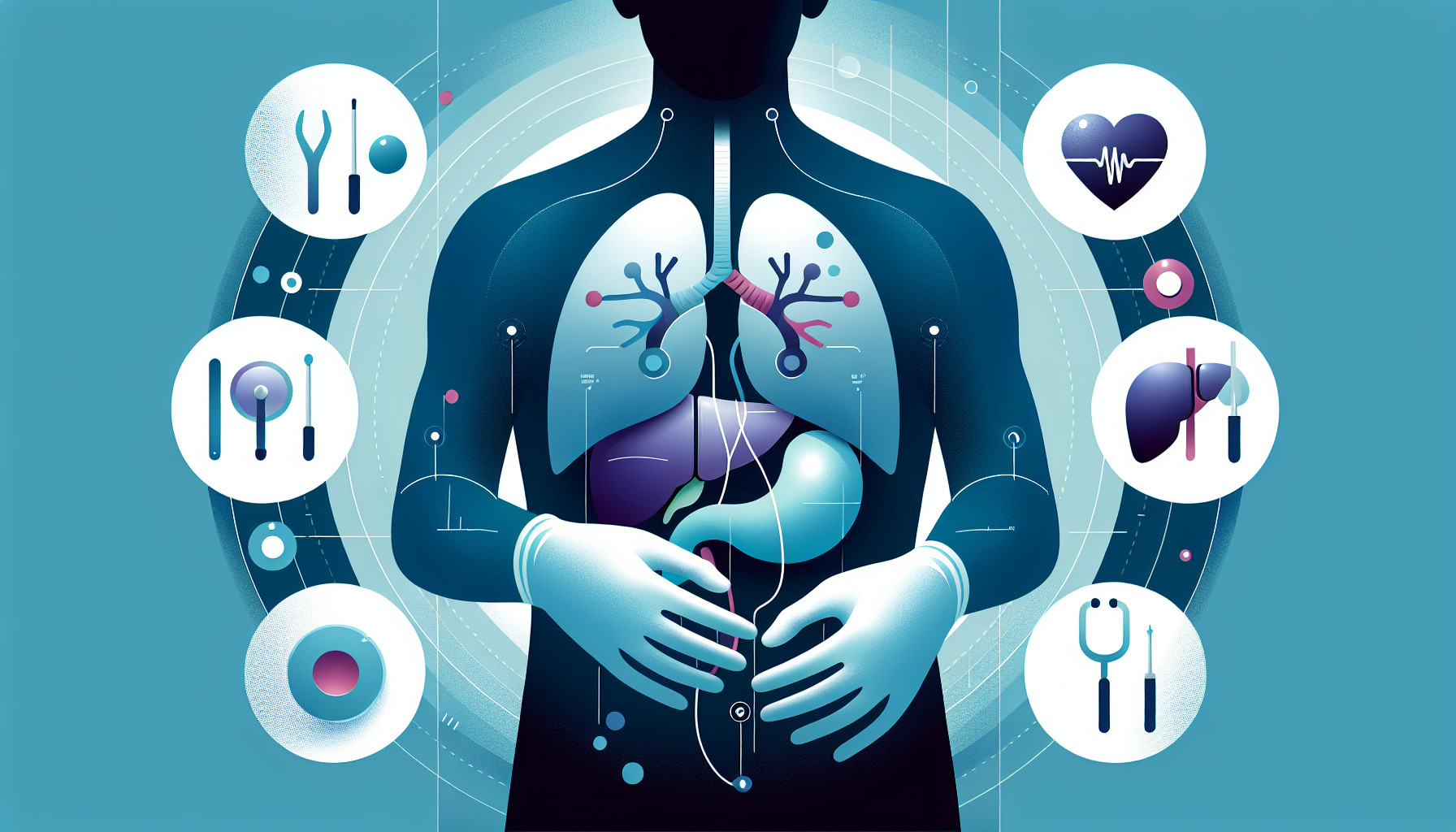Our Summary
This research paper discusses a study conducted on the effects of a process called hypothermic oxygenated machine perfusion in kidney and liver transplants. This method involves keeping donated organs at low temperatures while providing them with oxygen before they are transplanted. The study also looks at the role of immunosuppression, which is the reduction of the body’s ability to reject a transplanted organ. The findings from the study are gathered from randomized controlled trials, which is a type of scientific experiment that aims to reduce bias when testing new treatments.
FAQs
- What is hypothermic oxygenated machine perfusion in relation to organ transplants?
- How does immunosuppression play a role in kidney and liver transplantation?
- Are there any recent randomised controlled trials related to organ transplantation?
Doctor’s Tip
One important tip a doctor might tell a patient about organ transplant is to strictly follow their post-transplant medication regimen. This often includes immunosuppressant medications to prevent rejection of the transplanted organ. Skipping doses or not taking medications as prescribed can increase the risk of rejection and compromise the success of the transplant. It is important for patients to communicate openly with their healthcare team about any challenges they may face in adhering to their medication regimen.
Suitable For
Patients who are typically recommended for organ transplant are those with end-stage organ failure who have exhausted all other treatment options and have a high likelihood of benefiting from a transplant. Common types of patients recommended for organ transplant include those with:
- End-stage kidney disease requiring kidney transplant
- End-stage liver disease requiring liver transplant
- End-stage heart failure requiring heart transplant
- Lung disease requiring lung transplant
- Severe diabetes complications requiring pancreas transplant
These patients undergo a thorough evaluation process to determine their eligibility for organ transplant, including assessments of their overall health, ability to tolerate surgery, and likelihood of successful outcomes post-transplant. They also need to be willing and able to adhere to a strict medication regimen and follow-up care plan to ensure the success of the transplant.
Timeline
Before organ transplant:
- Patient is diagnosed with end-stage organ failure and is referred to a transplant center.
- Patient undergoes extensive medical evaluations and testing to determine eligibility for transplant.
- Patient is placed on the transplant waiting list and waits for a suitable donor match.
- Patient receives a call that a suitable organ donor has been found.
- Patient undergoes surgery to receive the organ transplant.
After organ transplant:
- Patient is closely monitored in the intensive care unit post-surgery.
- Patient is started on immunosuppressant medications to prevent organ rejection.
- Patient undergoes regular follow-up appointments and testing to monitor organ function.
- Patient may experience side effects from medications and require adjustments to their treatment plan.
- Patient gradually resumes normal activities and adjusts to life with a new organ.
- Patient continues to follow a strict medication regimen and lifestyle changes to maintain the health of the transplanted organ.
What to Ask Your Doctor
- What are the risks and benefits of undergoing an organ transplant procedure?
- How long is the recovery process expected to take after the transplant?
- What medications will I need to take post-transplant and what are the potential side effects?
- How will my immune system be affected by the transplant and what precautions do I need to take to prevent rejection?
- What lifestyle changes will I need to make after the transplant to ensure the success of the procedure?
- How often will I need to follow up with my transplant team for monitoring and evaluation?
- What are the potential complications or long-term effects of the transplant?
- How will my quality of life be affected by the transplant?
- Are there any alternative treatment options to consider before undergoing a transplant?
- What is the success rate of the transplant procedure for my specific condition?
Reference
Authors: O’Callaghan JM, Fallon J. Journal: Transpl Int. 2024 Mar 13;37:12853. doi: 10.3389/ti.2024.12853. eCollection 2024. PMID: 38544563
